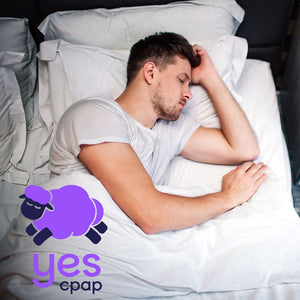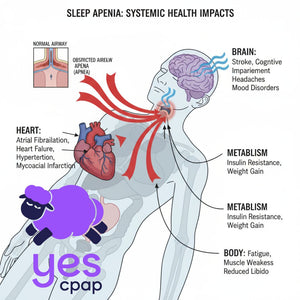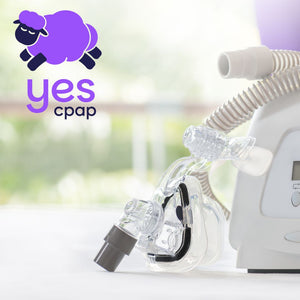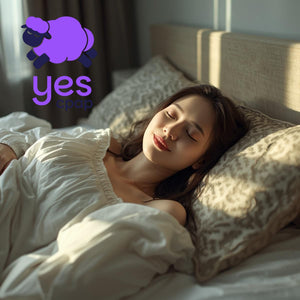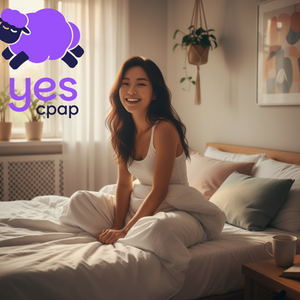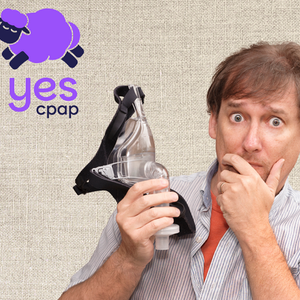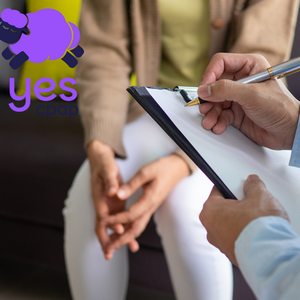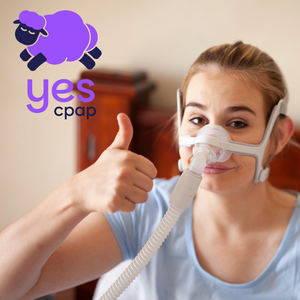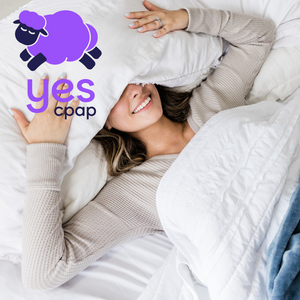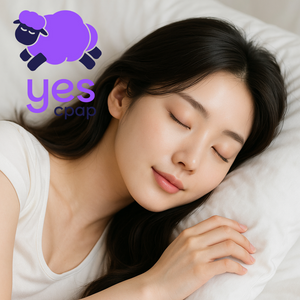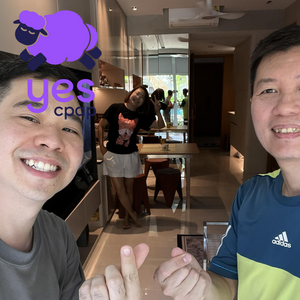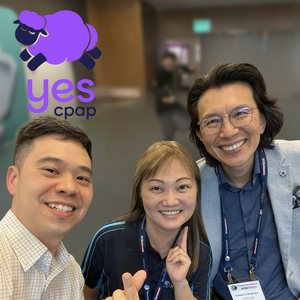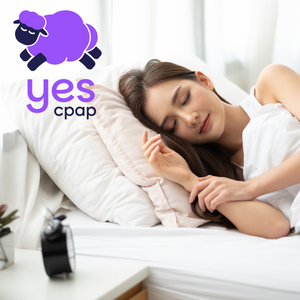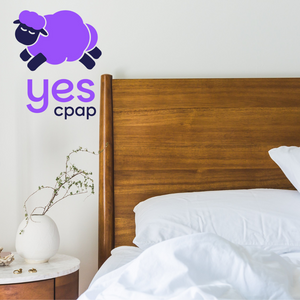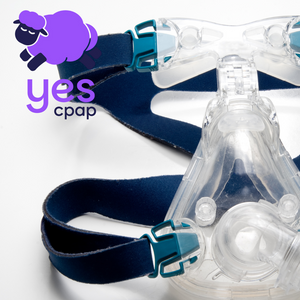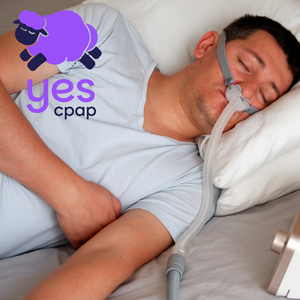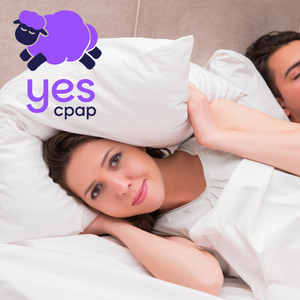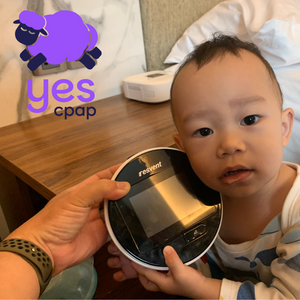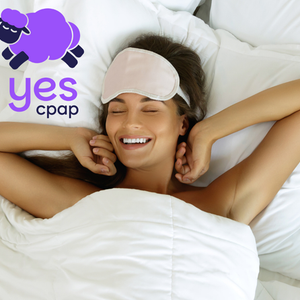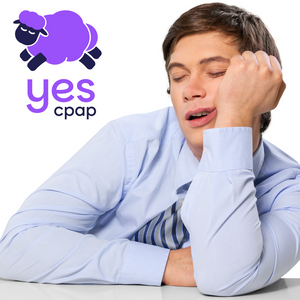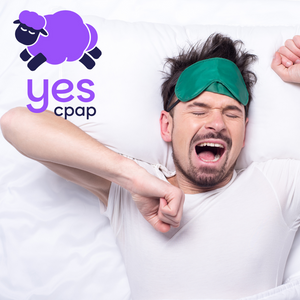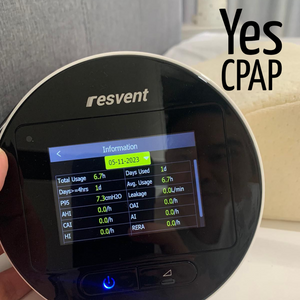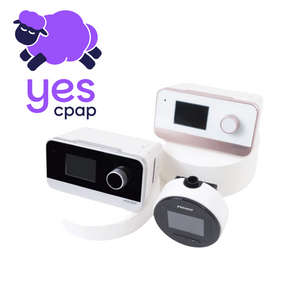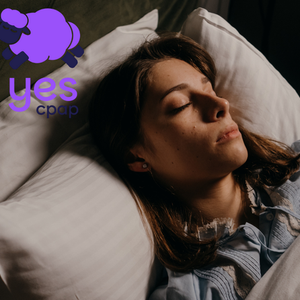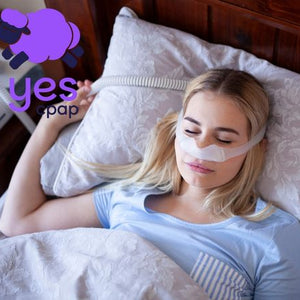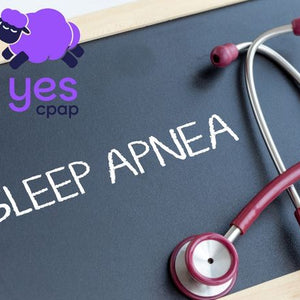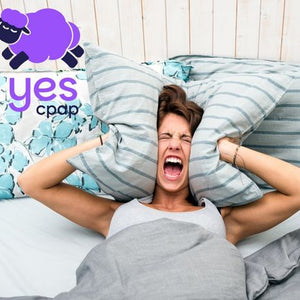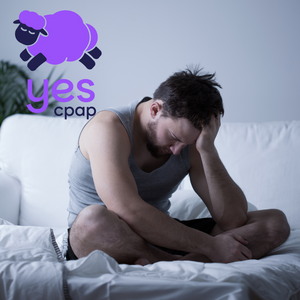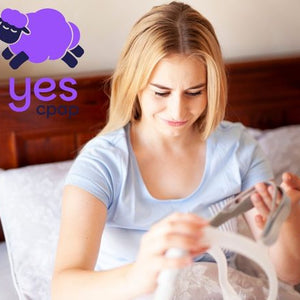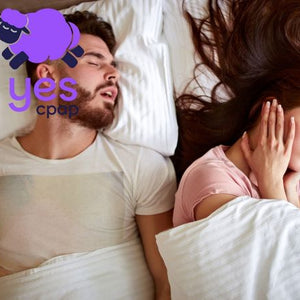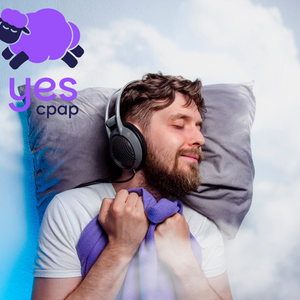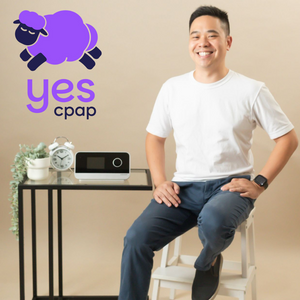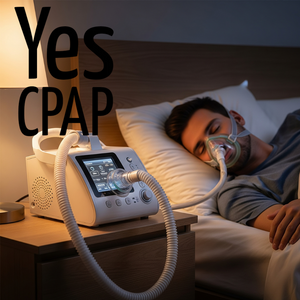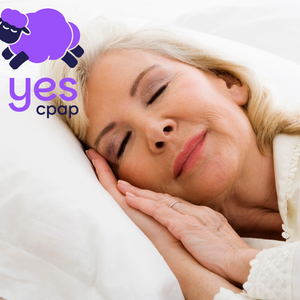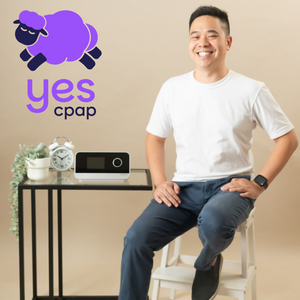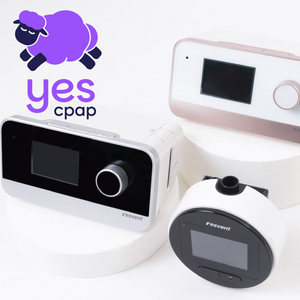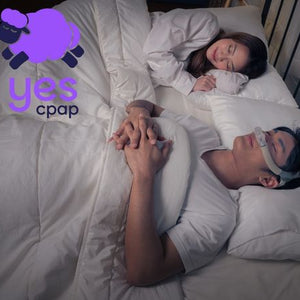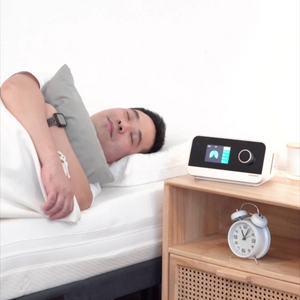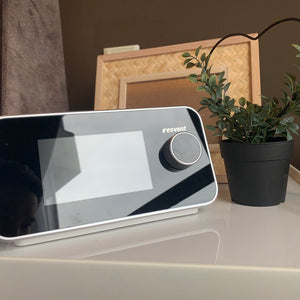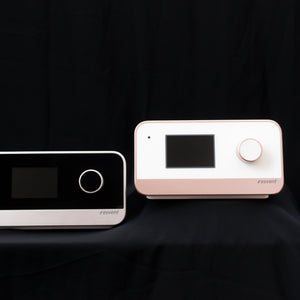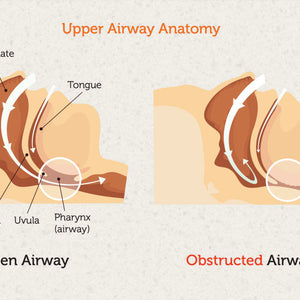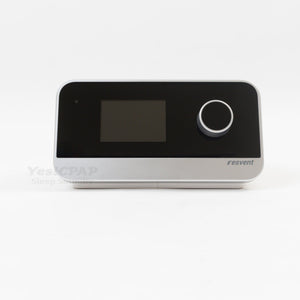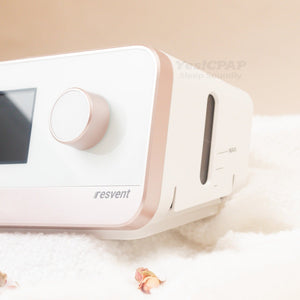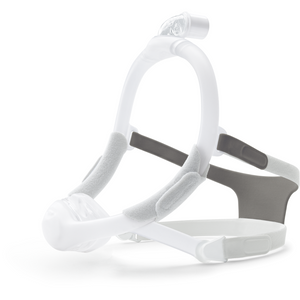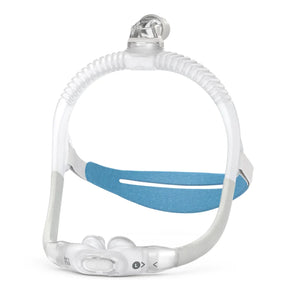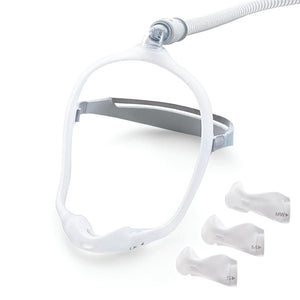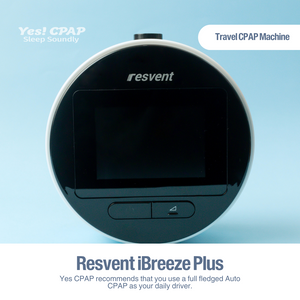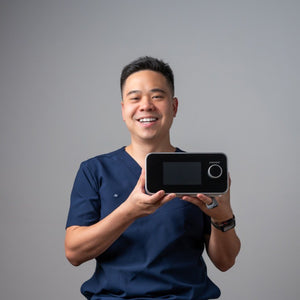Sleep apnea is a serious sleep disorder where breathing repeatedly stops and starts during sleep. In Singapore, it affects about 1 in 3 people, but 91% remain undiagnosed. Untreated, it can lead to heart disease, diabetes, and increased accident risk.
If you snore loudly every night, wake up exhausted after a full night's sleep, or nod off during meetings, you might have sleep apnea. This comprehensive guide covers everything you need to know about sleep apnea in Singapore, including symptoms, causes, testing, and effective treatments like CPAP machines. For more resources, visit our homepage.
What is Sleep Apnea? (Simple Explanation for Beginners)
Sleep apnea, derived from Greek meaning "no breath," occurs when your breathing pauses for 10 seconds or longer multiple times during sleep. In severe cases, this can happen hundreds of times a night, disrupting deep rest.
Imagine breathing through a collapsing straw—your body wakes briefly to reopen the airway, preventing quality sleep. According to Mayo Clinic, the three main types are:
- Obstructive Sleep Apnea (OSA): Throat muscles relax and block airflow (most common, 80-90% of cases).
- Central Sleep Apnea (CSA): Brain signals fail to control breathing.
- Complex Sleep Apnea Syndrome: A mix of OSA and CSA.
OSA is prevalent in Singapore, often linked to lifestyle and anatomy. Learn more in our blog or check our detailed guide on sleep apnea in Singapore.
How Common is Sleep Apnea in Singapore and Globally?
In Singapore, studies from leading hospitals like National University Hospital (NUH) show:
- 30.5% of adults have moderate to severe sleep apnea.
- 91% are unaware they have it.
- 1 in 10 have severe cases.
- Men are 3 times more likely than women to develop it.
Globally, Cleveland Clinic estimates over 1 billion people suffer from obstructive sleep apnea, with rising rates due to obesity and aging populations.
Sleep Apnea Symptoms: How to Spot It Early
Recognizing sleep apnea symptoms can save lives. Here's a breakdown: For a deeper dive, read our sleep disorders symptoms guide.
Nighttime Sleep Apnea Symptoms
- Loud, chronic snoring (audible from another room).
- Observed breathing pauses (partner notices stops in breathing).
- Sudden gasping or choking awakenings.
- Restless sleep with frequent tossing.
- Nocturia (multiple bathroom trips).
- Excessive night sweats.
Daytime Sleep Apnea Symptoms
- Persistent fatigue despite 7-9 hours of sleep.
- Morning headaches.
- Trouble concentrating or brain fog.
- Irritability, anxiety, or depression.
- Memory lapses.
- Drowsiness during activities like driving or work.
Red Flags Requiring Urgent Medical Attention
Seek immediate help from a Singapore sleep specialist if you:
- Have breathing pauses >10 seconds (witnessed).
- Wake gasping for air.
- Doze off while driving.
- Have resistant high blood pressure.
- Experience nighttime chest pain.
Causes of Sleep Apnea: Why Does It Happen?
Understanding causes helps in prevention and treatment.
Anatomical Risk Factors
- Large neck circumference (>17 inches for men, >16 for women).
- Narrow airways from enlarged tonsils, tongue, or adenoids.
- Receding jaw or craniofacial issues.
- Excess weight, especially neck fat.
Lifestyle Contributors
- Alcohol consumption (relaxes throat muscles).
- Smoking (inflames airways).
- Back sleeping (gravity obstructs airway).
- Irregular sleep schedules.
Associated Medical Conditions
- Hypertension.
- Type 2 diabetes.
- Cardiovascular disease.
- Stroke history.
- Hypothyroidism.
- Polycystic ovary syndrome (PCOS) in women.
The American Heart Association links these conditions in a vicious cycle with sleep apnea.
The 4 Stages of Sleep Apnea Progression
Sleep apnea worsens over time if ignored:
- Stage 1: Simple Snoring – Intermittent noise, no pauses; monitor sleep habits.
- Stage 2: Upper Airway Resistance – Frequent snoring, mild fatigue; try positional therapy.
- Stage 3: Mild Sleep Apnea (5-15 events/hour) – Headaches, sleepiness; seek testing.
- Stage 4: Severe Sleep Apnea (30+ events/hour) – Extreme risks; urgent treatment needed.
Health Risks of Untreated Sleep Apnea
Ignoring sleep apnea is dangerous: Learn about the scientific evidence in our CPAP benefits article.
Cardiovascular Complications
- Hypertension in 80% of cases (Journal of the American College of Cardiology).
- 30% higher heart attack risk.
- 2-4x stroke likelihood.
- Atrial fibrillation.
- Heart failure.
Metabolic Issues
- 70% increased diabetes risk.
- Hormonal imbalances leading to weight gain.
- Slowed metabolism.
Neurological and Mental Effects
- Cognitive decline (memory, decision-making).
- Depression and anxiety (reversible with treatment, per Cleveland Clinic).
Safety Hazards
- 2-7x higher car accident risk.
- 50% more workplace injuries.
- Falls in seniors.
Sleep Apnea in Children: Signs and Causes in Singapore
Unlike adults, kids show:
- Causes: Enlarged tonsils/adenoids, obesity, facial abnormalities, prematurity.
- Symptoms: ADHD-like behavior, poor academics, mouth breathing, bedwetting, stunted growth.
Consult a pediatrician if snoring persists with these signs—early intervention is key. More on children in our complete guide.
How to Get Tested for Sleep Apnea in Singapore
Home Sleep Apnea Test (HSAT)
Convenient, in-home monitoring from YesCPAP Home Sleep Test or try our basic home sleep test.
- Costs from $450 (professional home sleep test from YesCPAP; apply code SLEEP for $15 off DIY options).
- Results in days.
- Ideal for initial screening.
Polysomnography (Hospital Sleep Study)
For complex cases (e.g., with heart issues).
Overnight lab monitoring at centers like SGH or NUH.
Tests measure apnea-hypopnea index (AHI), oxygen saturation, heart rate, and sleep stages.
Best Sleep Apnea Treatments in Singapore
CPAP Therapy: Most Effective Option
CPAP (Continuous Positive Airway Pressure) uses a machine and mask to deliver air, keeping airways open. 95% effective with consistent use. Explore our full range of CPAP products or read our CPAP medical guide.
Modern features:
- Auto-titrating pressure.
- Humidification.
- Quiet operation.
- Portable models.
Popular CPAP Masks in Singapore (from YesCPAP)
- Nasal Pillows: Philips DreamWear Silicone Pillows – Compact, low-profile mask ideal for beginners; fits 70% of users; comes with M frame and 4 nose piece sizes (S, M, L, MW). Check it out here.
- Nasal Cushion: Philips DreamWear Under the Nose – For larger noses; comfortable seal; comes with M frame and 4 nose piece sizes. View details here.
- Full-Face: Philips DreamWisp – Very comfortable with head-mounted tube swivel; good for high-pressure needs or severe OSA; more comfortable than legacy Wisp masks. See more here.
- Also consider the ResMed P30i CPAP Mask for added comfort.
BiPAP for Advanced Needs
Bi-level pressure for easier breathing; better for seniors or CPAP failures. Discover the iBreeze Auto BiPAP.
Alternatives to CPAP
- Oral Appliances: Dental devices for mild OSA (70-80% success).
- Surgery: UPPP, tonsillectomy (last resort).
- Lifestyle Fixes: Weight loss, side sleeping, quitting smoking/alcohol.
Natural Remedies to Support Treatment
- Breathable organic bedding.
- Ergonomic pillows.
- Relaxing essential oils (lavender).
- Herbal teas (chamomile).
- Air-purifying plants.
CPAP Machine Comparison for Singapore (2025 Prices & Reviews from YesCPAP)
| Model | Type | Key Features | Price Range (SGD) | Best For |
|---|---|---|---|---|
| Resvent iBreeze Auto CPAP | Standard Auto | Auto-adjusting pressure, humidifier, heated tube; Singapore's #1 value for money solution to sleepiness, snoring, and sleep apnea consequences. Learn more. | From $1,400 ($1,200 with code YesCPAPFAM) | Beginners, humid climate |
| Resvent iBreeze Pro Auto CPAP | Enhanced Auto | Women-specific algorithm, premium comfort; breathing algorithm for ladies. View product. | From $1,500 ($1,300 with code YesCPAPFAM) | Comfort-focused users, women |
| Resvent iBreeze Plus Travel CPAP | Travel | Compact, battery-compatible, TSA-approved; for the go-getter, jet-setter; includes humidifier dock, silencer, optional battery pack. View product. | From $1,200 ($1,000 with code YesCPAPFAM) | Frequent travelers |
Compare more at YesCPAP or check our CPAP machines buying guide.
Starting CPAP Therapy: Tips for Success
- Week 1: Adjust to mask; normal discomfort fades.
- Month 1: Better sleep, energy boost.
- Long-Term: Normalized BP, easier weight loss.
Solutions for issues:
- Leaks: Resize mask.
- Dryness: Add humidity.
- Claustrophobia: Practice daytime wear.
For maintenance tips, see our CPAP care guide.
Cost of Sleep Apnea Treatment in Singapore (from YesCPAP)
- HSAT: From $450 (professional); apply code SLEEP for $15 off DIY.
- CPAP: $1,200-$1,500 (Auto CPAP with promo).
- BiPAP: $1,800 (with promo).
- Masks: $150-$300.
- Accessories: $50-$200.
Medisave/insurance covers prescribed tests and equipment—check CPF or your policy. Consider gifting with our YesCPAP gift card.
Sleep Apnea FAQ: Common Questions Answered
For more FAQs, visit our detailed FAQ page.
How Do I Know If I Have Sleep Apnea?
Key indicators: Snoring, pauses, daytime fatigue. Take an online quiz or book a test.
Is CPAP Permanent?
Often long-term, but weight loss may resolve mild cases.
Is CPAP Uncomfortable?
Modern models are user-friendly; 90% adapt in 2-4 weeks.
Can I Travel with CPAP?
Yes, with portable options and batteries.
What If I Ignore Sleep Apnea?
Higher risks of heart issues, diabetes, accidents (AASM studies).
Alternatives to CPAP?
Oral devices, surgery, lifestyle changes—for moderate/severe, CPAP is gold standard.
How Soon Do I Feel Better with Treatment?
Improvements in 1 week; full benefits in 4-6 weeks.
Does CPAP Aid Weight Loss?
Yes, by boosting energy and balancing hormones.
Where to Get Sleep Apnea Help in Singapore
- YesCPAP: Certified home testing, fittings, support (partnered with NUH). Contact us for a free consultation or read about our sleep specialist services.
- Public Hospitals: SGH, NUH, CGH, TTSH Sleep Centres.
- Private: Mount Elizabeth, Raffles, Parkway.
For emergencies (e.g., prolonged pauses, chest pain), visit A&E. Find the best specialists in our best sleep specialist guide.
Take Action: Beat Sleep Apnea Today
- Evaluate symptoms.
- Schedule a test.
- Start treatment.
- Follow up.
Contact specialists for free consultations. Sleep apnea is fully treatable—reclaim your health! Watch our sleep apnea documentary for more insights.
Related Articles
- Sleep Disorders in Singapore: Why 1 in 3 Can't Sleep Well (2025)
- CPAP Equipment Singapore Guide: BiPAP Machines & Supplies
- CPAP Machine Singapore 2025: Best Prices & Professional Setup
- CPAP SG: Best Sleep Apnea Treatment & Where to Buy 2025
References
- Mayo Clinic: Sleep Apnea Overview.
- Cleveland Clinic: OSA Facts.
- American Heart Association: Sleep-Heart Links.
- AASM: OSA Studies.
- JACC: Cardiovascular Risks.
Medical Disclaimer: Consult a doctor for personalized advice. This is educational content only, provided by YesCPAP, Singapore's leading RPSGT-certified sleep apnea specialists with expertise in CPAP therapy and home testing. All information is based on peer-reviewed studies and clinical guidelines for trustworthiness.




